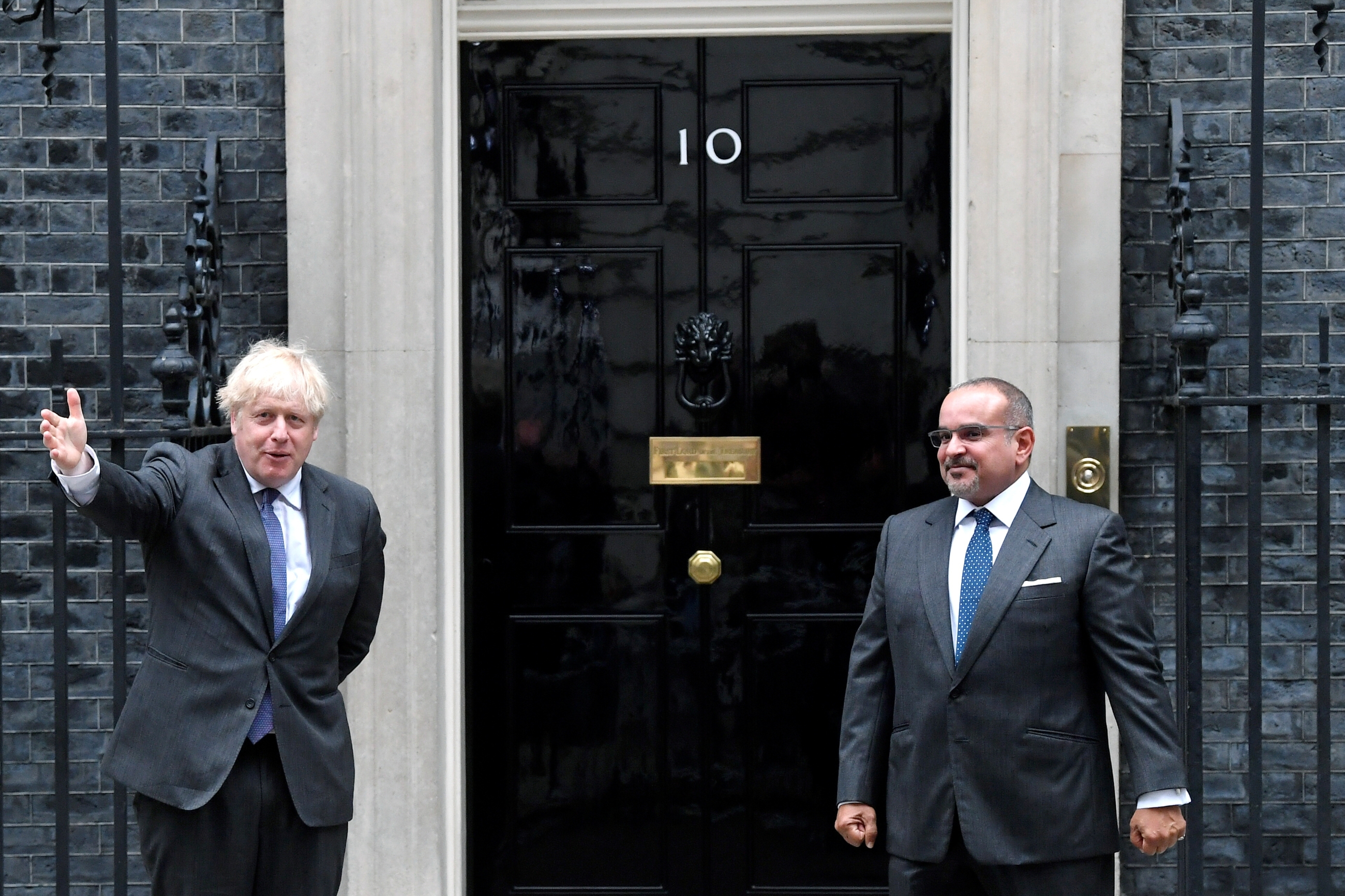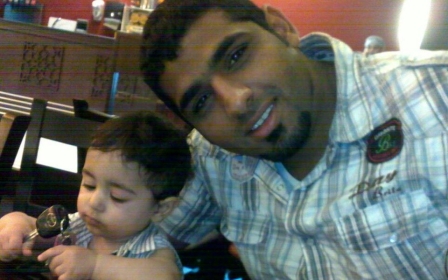Bahrain: UK accused of breaking own funding rules amid death penalties

The UK government appears to have violated its own guidelines by providing millions in funding to Bahrain while death sentences are handed down in the kingdom, a parliamentarian and human rights groups say.
“Do I think the government has breached its own rules? All the evidence would suggest yes,” said Lord Scriven, vice-chair of the All-Party Parliamentary Group on Democracy and Human Rights in the Gulf, during a panel discussion in parliament on Tuesday.
His comments follow the release of a report from the Bahrain Institute for Rights and Democracy (Bird) and Human Rights Watch documenting the case of eight men currently on death row in the kingdom, the majority over convictions for killing police officers.
'Do I think the government has breached its own rules? All the evidence would suggest yes'
- Lord Scriven
The report found that the men were sentenced to death without any physical evidence, but solely or in large part on confessions that authorities coerced them to make through torture and ill-treatment.
Bahraini prosecutors and courts failed to “genuinely investigate” their allegations of torture and ill-treatment or take independent medical evidence seriously before the men were sentenced to death, according to its findings.
New MEE newsletter: Jerusalem Dispatch
Sign up to get the latest insights and analysis on Israel-Palestine, alongside Turkey Unpacked and other MEE newsletters
The Bahrain embassy in London did not immediately respond to MEE’s request for comment, but responded to the report earlier this month saying that its criminal justice system operates in full compliance with international law.
"The UN's human rights principles, including the right to a fair trial, are enshrined in the country's constitution and legislative instruments," a Bahraini government spokesperson told The Telegraph.
Questions over assessments
Three Bahraini institutions which receive funding from the UK government - Bahrain’s Ministry of Interior, the Ministry of Interior Ombudsman and the Special Investigation Unit - are implicated in the report.
The three bodies are supported by the UK’s Gulf Strategy Fund, a £70m ($80m) fund that assists projects in six Gulf states, and has been dogged by criticism for being run opaquely.
Now those concerned about the fund say the HRW-Bird report raises doubts about whether the government has breached its own Overseas Security and Justice Assistance guidelines with its support to Bahrain.
According to those guidelines, the government should seek written assurances that “anyone found guilty would not face the death penalty” before agreeing to provide support.
In the absence of assurances, “the case should automatically be deemed ‘High Risk’ and FCO Ministers should be consulted”.
The UK government has said it conducted Overseas Security and Justice Assessments for the GSF programmes in Bahrain.
But Yasmine Ahmed, HRW’s UK director, said the Bird-HRW report has shown that UK taxpayer money is potentially going to bodies directly implicated in human rights abuses, raising questions about whether the government’s guidance was followed properly.
“Have assurances been provided by the Bahraini authorities and the king that the death penalty will not be imposed? If those assurances have been provided, why are these situations in fact arising?” she said.
“And if those assurances have been breached, then the provision should be immediately suspended.”
Sayed Ahmed Alwadaei, Bird's director of advocacy, said: "I strongly believe that the government has broken its own guidance when it comes to the overseas justice and security."
MEE asked the Foreign, Commonwealth and Development Office (FCDO) whether the government had sought such assurances from Bahrain over the death penalty or if GSF funding had been subject to further ministerial scrutiny.
An FCDO spokesperson responded: “We fund projects in Bahrain that support reform of the justice system. For example, our work to introduce alternatives to prison sentences has benefitted 4,300 individuals and reduced the prison population by over half.
“All projects on justice and security issues with partners overseas are subject to rigorous risk assessments to meet our human rights’ expectations. While we recognise challenges remain, stepping back from supporting reforms would be counterproductive.”
Lack of physical evidence
Joshua Colangelo-Bryan, a lawyer with the New York-based law firm Dorsey and Whitney and an HRW consultant, said the charges brought against the eight men documented in the report were based solely on statements given by people in custody.
“We don’t see fingerprints. We don’t see DNA linking a defendant to a crime scene. There are no CCTV videos showing a defendant doing something in particular. We don’t have independent eyewitness accounts,” he said.
One of the few times DNA evidence appears in court documents linked to the cases was in reference to a woman who held a bag that contained a bomb that killed a police officer.
“So the one time we see what we might think of as modern physical evidence, it exculpates the defendant,” he said. "But to the court, that was completely irrelevant.”
Once in custody, Colangelo-Bryan said, there were similarities in the types of alleged violence used. All of the men allege that officers beat them using fists, while seven said their genitals were specifically targeted with punches, kicks or electric shocks.
Other treatments used on several of the men include sleep deprivation, threats to harm their relatives, including threats of rape, and officers using a metal bar and chair to suspend them off the ground.
Some of the alleged torture and ill-treatment documented in the report happened in the Interior Ministry’s Criminal Investigation Directorate while the Ministry of the Interior’s Ombudsman and the Special Investigations Unit were found to have failed to credibly investigate torture allegations.
Four men documented in the Bird-HRW report have alleged that they were tortured at the Royal Academy of Policing, where the University of Huddersfield runs an off-site masters degree in security science for members of the Bahraini security forces.
Lord Scriven, who is from Huddersfield, said he wrote this month to the university asking for concrete evidence of any monitoring it is doing to show their programme is not implicated in human rights violations.
He said the university responded on Monday, citing the government’s view of its cooperation with Bahrain. “It is worrying that a higher education establishment in the UK was unable to provide any evidence, but just give a general view of government policy,” he said.
The University of Huddersfield did not immediately respond to MEE’s request for comment late on Tuesday.
Middle East Eye delivers independent and unrivalled coverage and analysis of the Middle East, North Africa and beyond. To learn more about republishing this content and the associated fees, please fill out this form. More about MEE can be found here.




